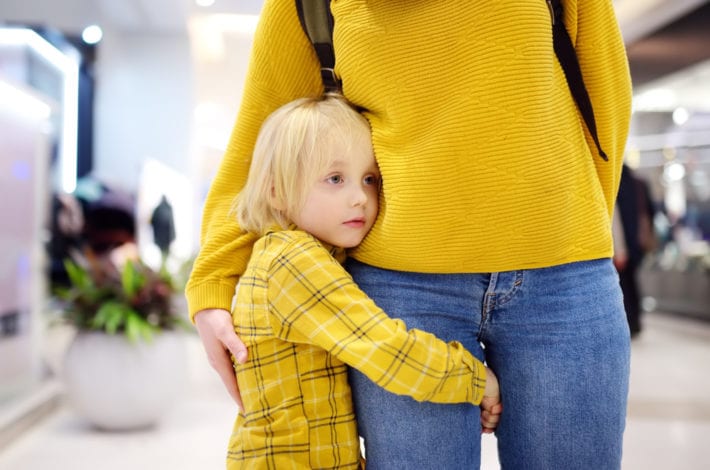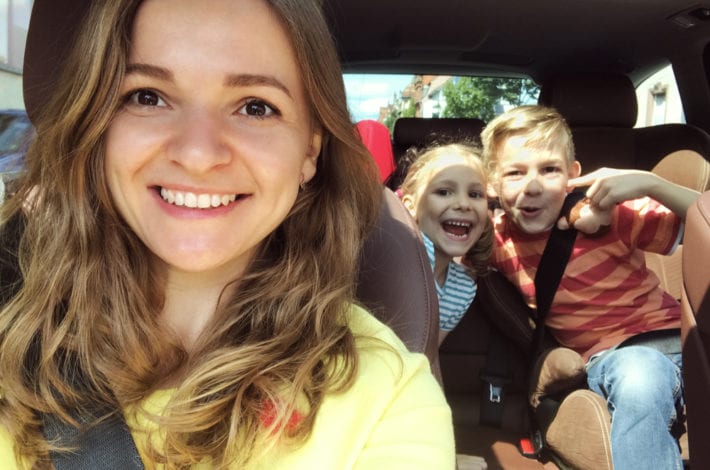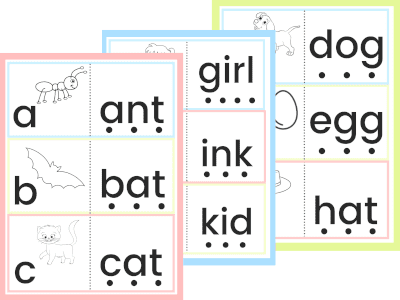

Christmas is a magical time for children. What makes it most exciting of all, is that they know that Santa Claus will be coming down the chimney. He’ll fill their stocking and leave their presents under the tree.
For children it’s the one day of the year when actual magic happens.
It isn’t just what they read about in storybooks or see in films. It actually happens in their own houses, before their very own eyes.
We can all still remember that childish excitement and wonder as we went to bed on Christmas Eve. The tingling in your tummy as you lay in the dark. Secretly hoping to hear the jingle of sleigh bells or the thump of hooves from the reindeer on the roof. And then the next morning discovering that Father Christmas had visited.
It’s a magic and wonder like no other. But is it wrong for parents to keep this Christmas myth alive?
Is it wrong to blatantly lie about Santa?
And are we actually damaging our kids by doing so?
Find out the truth about Santa Claus and how he can affect your children.
Does it damage your kids if you lie about Santa?
Psychologists have argued for years about the damaging effects of lying about Santa Claus.
In an article published in The Lancet in 2016, experts argue that lying about Santa is a ‘moral breach’ that could damage children. Written by Christopher Boyle – a psychologist at the University of Exeter – and Kathy McKay – a mental health researcher at Australia’s University of New England, they write:
Children must all find out eventually that their parents have blatantly and consistently carried on a lie for a number of years. If adults have been lying about Santa, even though it has usually been well-intentioned, what else is a lie?
They argue that children will be upset when they discover that their parents have been lying to them for so long. They claim that the bond of trust between parent and child will be broken.
This perspective might stump parents who are doing their best to make Christmas as magical as possible for their children. And who love watching their excitement build, as they tell the tale of Santa Claus coming to visit.
To those parents we would say that recent research has revealed something different. That Santa Claus is actually good for your children.
Here are 6 ways that learning the truth about Santa affects them.


The big reveal is not as traumatic as some would lead us to believe
Research has found that actually, most children discover the truth about Santa at around age 7.
They generally find out on their own and not through a traumatic conversation where their parents sit them down and admit that they have been lying to them for years. And rather than being traumatised, research reveals that actually:
Children reported predominantly positive reactions on learning the truth.
It turns out that the big discovery might not be as dramatic as some experts have led us to believe.
Writing for Psychology today , Vanessa LoBue, “The Baby Scientist”, writes about her own experience. She describes how she figured out that Father Christmas wasn’t real and how, doing so, didn’t upset her at all:
It was less like a traumatic revelation and more like solving a puzzle…which ultimately resulted in discovering a doll and a Tonka truck my mom had not yet wrapped. I had solved the mystery—and it felt good to figure it out on my own. I even kept up the ruse about believing in Santa for one more year to give my parents more time to cope with the fact that their little girl had outgrown her favorite childhood fantasy.


Magic and imaginative play is critical to healthy child development
Magic and make-believe is a natural, normal and magical part of childhood.
The world is a place full of wonder and imagination. Tree houses are magical forts and dandelions bring wishes. There may be fairies and unicorns and gold at the end of the rainbow. Not to mention the Tooth Fairy, the Easter Bunny and Father Christmas.
What a wonderful world to discover and explore. It certainly beats an adult world full of tax returns and supermarket shopping.
If we take away this magic too soon are we crushing our children’s natural sense of wonder?
Most children grow out of magical beliefs at around the age of 8 . This coincides with the age that most children will stop believing in Father Christmas.
Since children grow out of their make-believe worlds naturally, is it wrong to take away the wonder and magic before then?


The magic of Christmas is all around them
You’re not the only one creating the magic of Christmas. Children will be exposed to books, films and TV adverts. All of these tell of Father Christmas, his reindeer and the story of Christmas. So every December they are immersed in the whole myth of Santa Claus.
Research has found that even in households where parents don’t actively endorse the myth of Santa, many children still believe. Just as they might believe in fairies or unicorns.
Children, who have a natural sense of wonder, will be wrapped up in the magic anyway.


Tales of Santa ignite their curiosity
Young children believe that Father Christmas is real and get wrapped up in the magic. However they do also have a natural sense of curiosity.
They can start asking questions that are tricky to answer. Your child might ask:
How does Santa travel so fast that he can reach every house in the world in just one night?
Gulp! If you feel caught out but don’t want to destroy the magic, you can bat the question back and ask:
I’m not sure. How do you think his sleigh flies so fast?
If they confront you head on and ask a question such as:
Is Santa really real?
Then you have a choice. Either tell them the real story of Santa Claus. You could tell them about St Nicholas and all the people he helped. Perhaps you could say that the spirit of Santa is all around us and that is the Christmas spirit.
Or if you want to continue the magic for a little longer, be vague and say something like:
Santa is magical. One thing I know for sure is that when we believe he always seems to come and bring presents. I wonder how he does that?
Both can spark lovely conversations, which don’t expose a ‘lie’.


Magic helps children explore the world
Jennifer L. Hartstein, PsyD, a New York-based child, adolescent, and family psychologist and contributor on CBS’ The Early Show, says:
Young children very often live in a magical, fantasy world. Santa is part of that. The idea of Santa, and the tooth fairy, the Elf on the Shelf …. any of these things are part of the innocence and wonder of childhood. A child’s innocence and exploration and wonder at the world is a great thing, and we want to encourage exploration of fantasy and imagination in our children. Although there is fear in parents about what will happen when they find out the truth, especially for the good things, I think the enjoyment of fantasy is wonderful for them


The magic of Christmas and Santa Claus is contagious
Believing in Santa Claus is what makes Christmas time so magical. And not just for children, but for their parents who are seeing it through their children’s eyes.
Some experts want us to believe that our children will be traumatised when they discover that Father Christmas is not real. The truth is that, when they do, it’s often the parents who will be more upset.
Your child will almost certainly, not end up in years of therapy once they discover Santa is not real. But as parents you might feel a bit flat. Because when your child figures out the truth then it marks an end to their natural childhood wonder and a sign that they are growing up. A sign that the innocence of childhood is fading.
But until that time, enjoy the magic of Christmas. Join in the wonder of Santa that brings so much excitement to this time of year.
And the next time you see an article telling you that you’re traumatising your kids because you lie about Santa, remember that the magical beliefs of Christmas can be good for them. And it’s OK to enjoy the wonder of Christmas right alongside them. Guilt-free!
References
- “Should parents lie to children about Santa?”, EurekAlert
- “Imaginary figures of early childhood: Santa Claus, Easter Bunny, and the Tooth Fairy.” PsycNET
- “Santa Claus and the Tooth Fairy for the Jewish Child and Parent”, Taylor & Francis Online
- “Why It’s OK for Kids to Believe in Santa Claus”, Psychology Today






